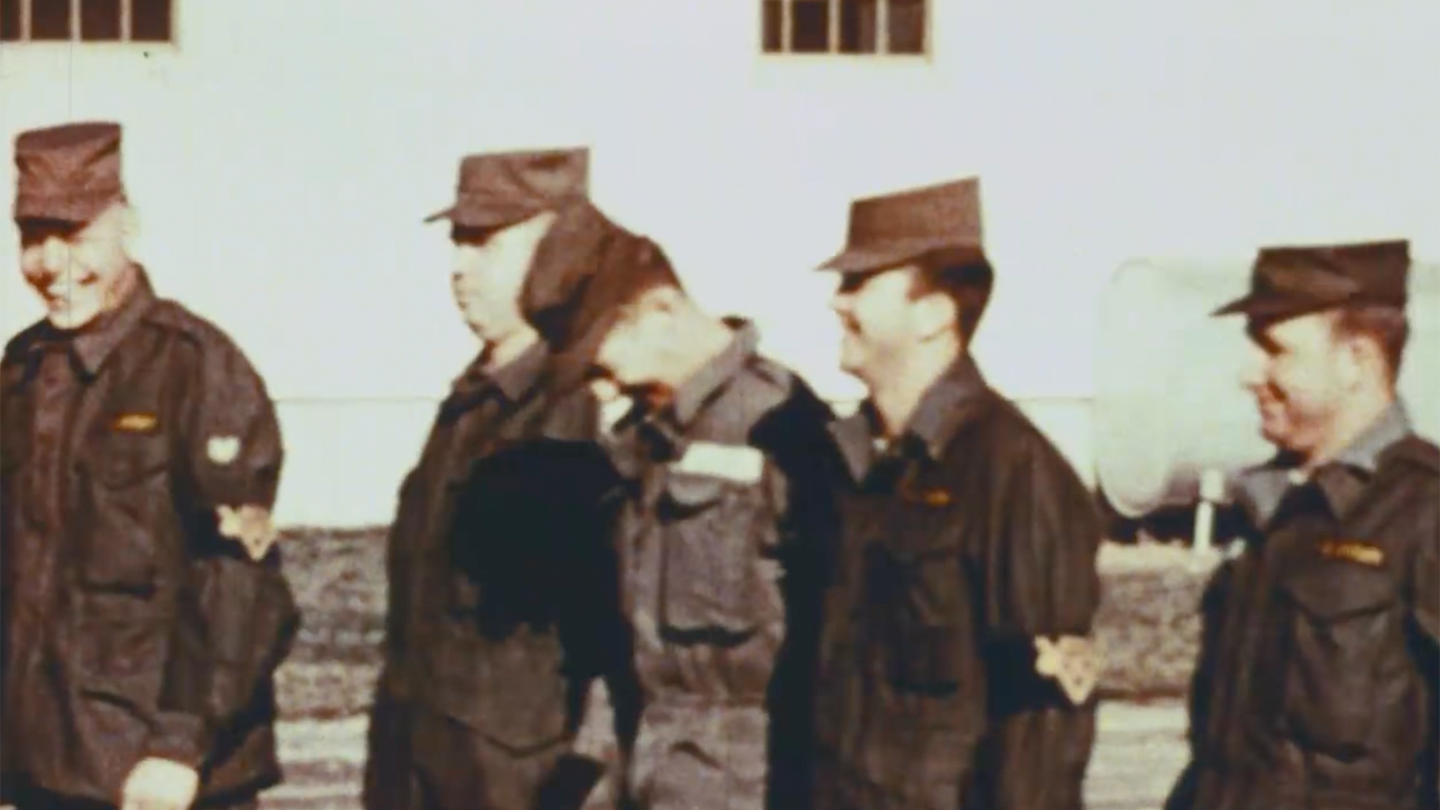How the Army once got its own soldiers stoned out of their minds
Talk about a bad trip.

During the Cold War, an Army sergeant with a Combat Infantry Badge on his uniform stumbled through the woods and was apparently unable to comprehend a tree branch in front of him while being led around an obstacle course.
“No, I’m not cold at all,” said another soldier who was, to put it mildly, tweaking out of his mind while speaking to a couple of Army doctors, despite not seeming to know where he was. “I could run 100 miles right now.”
These were some of the test subjects from medical experiments conducted for two decades at the Edgewood Arsenal, a section of Aberdeen Proving Grounds in Maryland. And by “medical experiments” we mean that the Army spent years getting its soldiers high.
The study is the subject of the new documentary “Doctor Delirium and the Edgewood Experiments,” debuting this week on Discovery+.

The question at the heart of these experiments was, bluntly, can you fight a war if you are on a drug trip? Or, if you want to put it in language that’ll pass muster at a closed session in Congress: can psychochemical warfare be used to incapacitate enemy troops?
And in trying to figure that out, thousands of soldiers were used as test subjects while knowingly and unknowingly given a variety of substances, from tear gas to Phencyclidine (PCP) to psychoactive drugs including lysergic acid diethylamide (LSD) and 3-Quinuclidinyl benzilate, known as “BZ.”
“This was the Cold War, and I was assigned to the Cold War at its height,” says Dr. James Ketchum, an Army psychiatrist who oversaw many of the experiments, in archival footage.
Beginning in the early 1960s, BZ became a central focus of testing.
“It’s more like psychosis or delirium,” says one researcher of the effects of the drug.
In one test, four soldiers were given varying doses of the drug and spent the next several days trying — and generally failing — to perform basic tasks like donning a gas mask. One man stayed awake and suffered hallucinations the entire time, completely unable to function.
BZ was eventually weaponized, although it was never employed in combat and the military destroyed all stockpiles at the end of the Cold War. The testing continued until 1975 when the program was shut down amid congressional investigations.

The soldiers were generally recruited by being told that they would mostly be testing equipment for the U.S. Army Chemical Corps. Coupled with the promise of no guard shifts or weekend duty, it might seem like a nice way to spend a couple of months in the Army. While assigned to the temporary duty, as one soldier described it, certain names would be called for that day’s experiments. Because of the classified nature of the program, however, they were rarely told exactly what they were being exposed to.
This also meant that years later, these soldiers found it difficult or impossible to file medical claims with the Department of Veterans Affairs for the after-effects of the experiments.
At the time, the Feres Doctrine also prohibited service members from suing the government for negligence or wrongdoing.
In 2009, though, several of the Edgewood veterans filed a lawsuit against the Central Intelligence Agency, citing the government’s failure to follow the Nuremberg Code, a set of ethical guidelines for medical testing developed following the discovery of Nazi experiments conducted during World War II.
The court ultimately ruled in favor of the veterans, saying that they were eligible for full medical benefits and that the government had a duty to continue warning them of any potential side effects of the tests.
However, many of the test subjects interviewed in the documentary, say that it has still been difficult to get a clear picture of what was done to them. Many have likely never been contacted by the government, while others in the film showed consent forms with dates that don’t even match their service records.
In the archival interviews, Ketchum, who passed away in 2019, is more sanguine about the tests.
“I’ve got regrets about a number of things I’ve done,” says Ketchum. “But that would not apply to the work I did at Edgewood.”
The latest on Task & Purpose
- Someone apparently leaked classified Chinese tank schematics to win an online argument
- Flip-flop-wearing Air Force commandos saved 2 lives on the way back from training
- How Ukraine is using artillery to stop Russian forces in their tracks
- The Navy might have a garage sale for the Littoral Combat Ships they just built but don’t want
- Ukrainian fighter calls US soldier for help fixing Javelin missile launcher
Want to write for Task & Purpose? Click here. Or check out the latest stories on our homepage.
